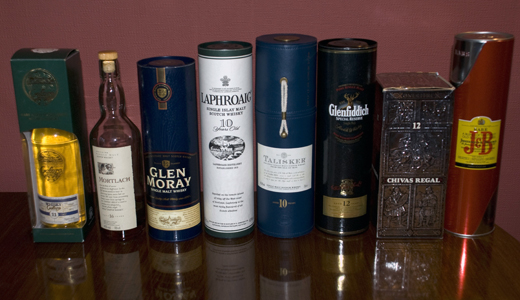 2014
2014
First Minister of Scotland Alex Salmond has come under fire this week for referring to his home country as “a nation of drunks.” Salmond is currently fighting to set a minimum drink price, a campaign bitterly opposed by the Scotch Whiskey Association. European judges are now set to rule on the policy, which Salmond hopes will promote responsible liquor consumption in Scotland. The Daily Mail reports:
In the interview published today, Salmond even appears to blame the country’s alcohol problems on Scotland’s lack of independence, saying: ‘There is something deep about Scotland’s relationship with alcohol that is about self-image—lack of confidence, maybe, as a nation—and we have to do something about it.’ Scotland not only remains top of the alcohol league in the UK, it also has the eighth highest alcohol consumption level in the world. In 2010, 23 per cent more alcohol was sold per adult in Scotland than in England and Wales. Explaining that he promotes whisky when abroad, Mr. Salmond told interviewer Alastair Campbell: ‘My argument is that if you are promoting it as authentic and of great worth, you cannot promote it from a nation of drunks.
 1844
1844
For Friedrich Engels, liquor wasn't just a social problem—it was a labor problem. On a tour through the northern cities of Great Britain, he observed the leisure habits of the working classes and lamented what he saw as the true curse of the laborer:
Drunkenness, sexual irregularities, brutality, and disregard for the rights of property are the chief points with which the bourgeois charges the workers. That they drink heavily is to be expected. Sheriff Alison asserts that in Glasgow some thirty thousand workingmen get drunk every Saturday night, and the estimate is certainly not exaggerated; and that in that city in 1830, one house in twelve, and in 1840, one house in ten, was a public house; that in Scotland, in 1823, excise was paid upon 2,300,000 gallons of spirits; in 1837, upon 6,620,000 gallons; in England, in 1823, upon 1,976,000 gallons, and in 1837, upon 7,875,000 gallons. When one has seen the extent of intemperance among the workers in England, one readily believes Lord Ashley’s statement that this class annually expends something like twenty-five million pounds sterling upon intoxicating liquor: and the deterioration in external conditions, the frightful shattering of mental and physical health, the ruin of all domestic relations that follow may readily be imagined. True, the temperance societies have done much, but what are a few thousand teetotalers among the millions of workers? When Father Mathew, the Irish apostle of temperance, passes through the English cities, from thirty to sixty thousand workers take the pledge, but most of them break it again within a month.